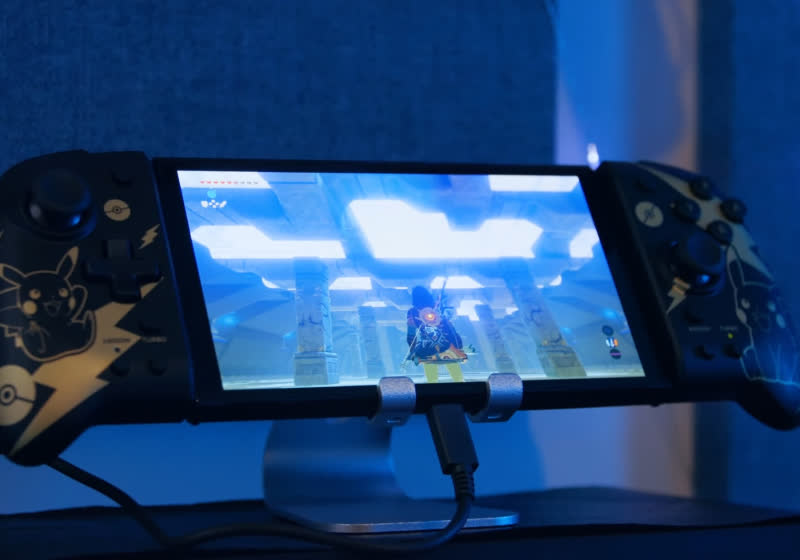
In context: We already knew that fears over the Nintendo Switch OLED suffering from screen burn-in were unwarranted, but questions over just how long it would take before image retention appears remained unanswered—until now. The good news is that it takes a long, long time before even the first signs appear.
You might remember back in December when Bob Wulff of YouTube channel Wulff Den carried out an experiment that involved leaving a screenshot of The Legend of Zelda: Breath of the Wild on his Nintendo Switch OLED at full brightness 24/7. After 1,800 hours (75 days) of this, there was no visible indication of burn-in and no significant differences in any of the color tests he ran.
To keep the Switch from turning the screen off, Wulff attached a third-party Hori Split Pad Pro Controller that continuously performed automatic button presses. He also kept the device plugged in at all times.
In his latest update on the experiment, Wulff has revealed that the Nintendo Switch has finally started showing the first faint signs of burn-in, and all it took was 3,600 hours, or 150 days, of constantly showing the same image.
Wuff notes that there is a little bit of “blue ghosting” on the screen, though it’s still pretty difficult to notice unless you have a large section of the screen showing a single color.
The bottom line here is that there’s absolutely no need to be concerned about burn-in on your Switch OLED; Wulff says that his model is still playable after such an extreme test, and it would probably take another 1,800 hours before it became a problem.
Some OLED screens still experience image retention—as Linus Sebastian (above) can attest to—but TV companies have introduced features designed to limit the problem. LG’s Screen Shift moves the screen slightly at regular intervals to preserve image quality, and its Logo Luminance Adjustment detects static logos on the screen and reduces brightness in that location.